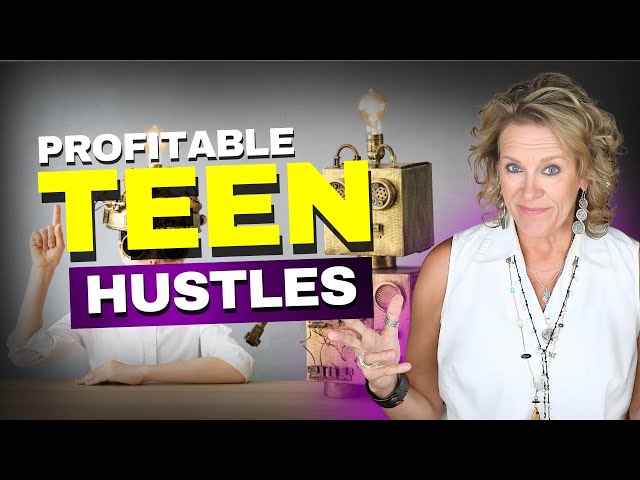In today’s digital economy, age is no longer a barrier to entrepreneurship. With smartphones in hand, internet access, and a bit of guidance, teens, yes, even 15-year-olds, can begin building online businesses that create real income and set the foundation for long-term wealth. Whether you’re a teen with a spark for hustle or a parent looking to support your child’s entrepreneurial journey, this article will show how to turn curiosity and creativity into cash.
Here’s how to structure a successful business before age 18, invest early, and build skills that last a lifetime.
Step One: Start with the Right Structure
Teen entrepreneur? You’ll need help from a parent.
You can’t open a business bank account, form an LLC, or get a merchant account without legal adult involvement. Parents need to step in to create the foundational structure, typically through an LLC. For families with multiple children, each child should have their own LLC to help clearly define revenue, ownership, and responsibilities.
“At 18, I want you to hand it off to them… just start a simple company now.”
Why an LLC? Because it offers liability protection and sets the business up for potential tax benefits. In states like California, converting the LLC into an S-Corp may make sense depending on income levels.
Build an Online Store Around What You Love
What are your interests? That’s where the business begins.
From sports coaching and tutoring to skincare reviews and DIY crafts, teens today have countless options to turn their passions into profitable ventures. One girl mentioned in the video built a Pinterest store reviewing products, generating up to $400,000 annually, all from offering authentic opinions.
Common profitable niches for teens:
- Sports training (e.g., volleyball spike technique)
- Tutoring and homework help
- Beauty and skincare reviews
- Gaming tips and digital downloads
- Etsy-style crafts or digital art
- Affiliate product reviews on blogs or YouTube
Affiliate marketing is an easy entry point. Teens can earn commission promoting products on platforms like Amazon, Etsy, or even through direct sales organizations. However, they’ll need a parent to sign off due to age restrictions.
Debit vs. Credit: Why It Matters for Young Entrepreneurs
Debit cards may seem safer, but they come with downsides.
The speaker strongly recommends credit cards over debit cards for business expenses because they offer fraud protection and allow for leveraging money interest-free for up to 30 days. Major banks like American Express, Chase, and Citibank are more reliable in dispute resolution than smaller credit unions or debit-only solutions.
Using a credit card wisely:
- Builds financial habits early
- Provides a safety net against fraud
- Let teens learn the value of interest-free leverage.
Invest Early, Even if You’re Still in High School
Once you start making money, the next step is investing.
With help from a parent, teens can be listed as employees of a family-owned LLC and receive income legally. As long as their earnings are under ~$12,550 (current IRS standard deduction), they don’t owe income taxes. However, this employment status opens the door to setting up a Roth IRA for Teens.
“You say, ‘But I can’t use the money till late in life.’ That’s the point.”
Roth IRAs let teens contribute up to $7,000/year of earned income, and the power of compounding makes even small monthly contributions grow exponentially over decades. Use compound calculators to see what happens when you invest $50–$100 per month for 40 years. It’s eye-opening.
Tools to Teach Financial and Business Skills
GravyStack and iFlip are two standout tools mentioned in the video.
- GravyStack: Helps kids complete tasks or “missions” to earn money, think of it as gig-based gamification for life skills.
- iFlip: A stock trading simulator and portfolio builder that lets teens get a feel for the market before diving into real investment decisions.
These apps encourage teens to understand the flow of money, the basics of budgeting, and the impact of smart vs. impulsive spending.
The 50/50 Rule: Earn, Spend, and Invest
Every dollar a teen earns should be split:
- 50% can go toward spending or charitable giving
- 50% should go into savings or investments
This creates early exposure to the discipline of delayed gratification, a key trait of long-term success.
“$50 a day. That’s all you need to make $1,000 a month.”
From babysitting and tutoring to selling digital products or managing social channels, $50/day is an achievable goal even for teens balancing school.
Mentorship: The Secret Weapon for Teen Success
The speaker’s journey began at age 17 after reading Think and Grow Rich, a turning point that connected her to mentors like Dennis Waitley. Every teen should seek mentors who can offer advice, internships, and hands-on learning.
Ideas to gain experience:
- Shadow a real estate agent if you’re interested in housing
- Intern with a local business
- Volunteer for your parents’ business or a friend’s startup
- Join programs like AskLoral’s Millionaire Intensive
By surrounding themselves with business-minded people, teens learn by osmosis and gain confidence to pursue real growth.
Recommended Reading
For teens and parents alike, these books offer foundational knowledge:
- Make Your Kids Millionaires – a structured 87-point checklist
- Think and Grow Rich by Napoleon Hill – a mindset-shifting classic
- The Millionaire Maker – focused on financial habits and family planning
These resources can spark conversations that the school never touches.
Bridging the Parent-Teen Divide
Many teens face resistance from parents raised on traditional financial advice from Suze Orman or Dave Ramsey. That’s okay, entrepreneurship isn’t always the “safe” path. But if teens can show structured plans and professional support (like AskLoral’s programs), parents often come around.
“You kids are our charity… if your parents become clients, your education is free.”
With guidance, structure, and exposure to mentors, a 15-year-old today can easily be a financially independent adult by 25 without waiting for college or a corporate job.
Final Thought: Who Do You Want to Be?
Do you want to spend your teen years watching content or creating value?
The choice is yours. Grab your interests, find your tribe, and start building. Whether it’s a music brand, a tutoring platform, or a storefront on Etsy, the time to start is before you’re 18.




